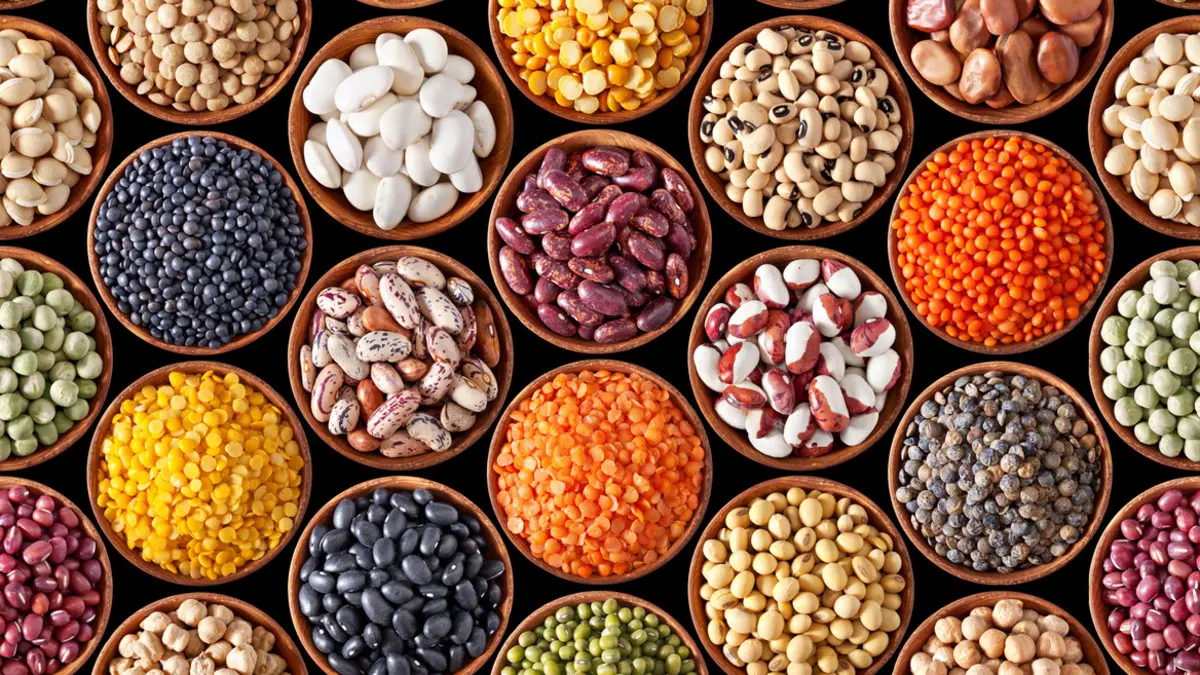Nasira Syed Ali
Experts in economic affairs and consumer protection have expressed the decision to prevent private economic dealers from importing rice and dry vegetables, and this – according to them – comes within the framework of measures to prevent speculation and illegal trading, which results in depriving the citizen of these materials at times in their absence on the shelves of shops and major commercial spaces. It was found inflamed by those who approached it, and accordingly, these experts considered that the process of importing these people back to the official department is a positive sign, pending the generalization of this decision to the rest of the necessary products and materials that private importers are trying to tamper with unstudied prices and their justified rise under flimsy pretexts.
As a reminder, the Professional Association of Banks had issued an instruction banning import operations by private dealers starting from February 9, related to rice and dry vegetables. Exports inform us of the exclusivity of importing dry vegetables and rice by the Algerian Occupational Grain Office and prohibiting their import by other dealers.
The state is the main actor in regulating the grain market
In the context, the economist Dr. Buhous Bousheikhi called for the “dialogue” I have always called in many situations for the need to return the import process to the official department, so as long as the source of hard currency is the state, why does it not itself undertake the practice of foreign trade, and it is the one that imports and sells at a price Fair, instead of giving it to private importers who scoop from the state treasury and import grains of all kinds and then sell them at exorbitant prices, under the pretext of international conditions such as the high cost of transportation, for example.
Dr. Boushekhi said that he is against private dealers who are given hard currency, at the official rate, and not at the “square” rate, and who buy dry grains, then sell them at their own price, and refer the reasons for their rise to the global stock exchange.
The economist, Dr. Bouchikhi Bouhous, confirmed in the same context that the Algerian state in the past used to conclude cooperation agreements with countries that initiated the import process, and the price of sugar was sold for only 2 DZD, and when the process was assigned to the private sector, the prices of some dry grain importers made them control the food. The Algerian people impose imaginary prices that threaten national security. The return of the national debt to dry grains. The monopoly of trade achieves abundance and a fair price, provided that the university and scientific research are integrated and university graduates are absorbed.
The farmer’s markets and the Algerian arcades must be brought back to the fore
In the same context, the economist Dr. Bouhous Boucheikhi called for the importance of re-establishing the networks of farmer’s markets and Algerian galleries across the entire national territory, which sell their products at the official price, taking into account the purchasing power of the consumer. He added: After the restoration of national sovereignty, many institutions were established and built. And major complexes that are considered the pillar of the national economy in order to produce, employ, and build a social state that takes care of all its children in terms of education, health, and comprehensive development, where all aspirations were fulfilled in the seventies, eighties, and nineties. The fall of the socialist camp, the different countries of the world turning to a market economy and the political crisis forced the state to give up internal and external trade in favor of the private sector within the framework of liberating initiative, freedom and democracy… But this step – according to him – was improvised and not appropriate, as the private sector monopolized internal and external trade And, as I indicated earlier on the other hand, the state is the source of hard currency through the Central Bank, which controls the inputs of Dr The proceeds from the sale of oil and gas belong to the national group.
The state must return through its economic institutions
Accordingly, Dr. Boushekhi believes that it is necessary to return to the previous system, whereby the state, through its economic institutions, imported and regulated all goods and supplies and guaranteed after-sales services, and this was done through commercial diplomacy, i.e. supply agreements from the source without referring to the global stock exchanges, whether from Latin America or beets. Diabetes, cotton, coffee, red meat, and equipment, tools, cars, etc., from China, or South-South African cooperation, etc… After all, all products are distributed through sending networks of farmer’s markets and Algerian galleries for the right place and the right time, but the management must be reconsidered, these institutions economy by involving universities, scientific research, innovation methods and e-commerce.
The state must impose its price policy on the market
For his part, economist Dr. Nabil Jumaa explained, in his interview with Al-Hiwar, that the state’s decision to return to the economic arena and start importing dry grains through its official channels is considered a radical solution in order to organize this branch that is controlled by barons that impose the logic of its price according to its own whims. , which seeks whenever the winter comes with its bitter cold, as the Algerian family resorts to consuming legumes according to the requirements of the season, these barons who control the Algerian legume market go to raise their price index, justifying this with the increase in their price in the global stock market or the increase in international transport, which are all – as He said – flimsy and unfounded justifications.
This, and the economic expert, Dr. Nabil Jumaa, confirmed that the president’s decision to restore the process of importing grains to the state incubator is a correct decision, because the Algerian state at one time acquired 99 percent of the size of the distribution network, all of which belonged to public institutions, to turn the balance of the national market at the end of the eighties and the beginning of the nineties, Going through the period of the beginning of the millennium, when those who controlled it became private distributors, and they were helped in this – according to him – by the legal texts that were separated according to their size, and here is the state today – says Dr. Jumaa – present with its serious means through the Central Bank that will restore the balance of the grain market, calling on the authorities The supreme authority in the country imposes its price policy on private individuals in the event that it considers granting its national distribution to private individuals.
The state is reviewing its import logic
In the same context, the National Coordinator of the National Organization for the Protection and Guidance of Consumers and their surroundings, Fadi Tamim, in his meeting with Al-Hiwar, appreciated the decision to prevent private learners from importing rice and dry vegetables and for the state’s authority to carry out these tasks, represented by the National Bureau of Grains and Legumes, referring to the reasons for this transformation. What happened during the Corona crisis and the accompanying manipulations on the part of the private, and the resulting many forms of problems that threaten the social class of speculation and monopoly of goods, and what resulted from that in raising prices that burdened the Algerian consumer, which made the Algerian state tend to grant strategic sectors to public institutions, considering that a good indicator if appropriate mechanisms are available – as he said – that enrich the national market, these products at reasonable prices, indicating that the decision to ban private individuals from importing these people will protect the market from the imbalances that it was witnessing in the past, He called on the public authorities to grant part of the products that they are prohibited from importing so that they can be distributed due to their experience in the distribution process and their knowledge of the national distribution network, and that wholesalers and retailers should not manipulate prices, so as not to Like what we witnessed during our field trips, the same speaker adds, some merchants resorted to raising prices without any justification.
For reference, the Minister of Trade, Kamal Rizik, confirmed that the exclusivity of importing dry legumes for industrialists will be for the Algerian National Grain Professional Office, noting that this decision was not taken in 2023, but was taken last year by the higher authorities in the country, where it was initiated to apply it to The range of two parts, and the first part represented the exclusivity of the import of legumes by the Professional Cereals Bureau, or what is known as buying for the sake of selling, and exclusivity was given to the Bureau.
The Minister of Commerce added that the Professional Grain Bureau has gained experience in importing “selling on condition,” adding that any wholesaler or retailer can go to the Bureau in order to buy and sell legumes, so the government decided not to apply exclusivity at once.
#Economists #Prices #legumes. #breakthrough #AlHiwar #AlJazaeryia
#oussama_boulegheb #elhiwardz #alakhibariat.xyz #elhiwar #elhiwar-en


